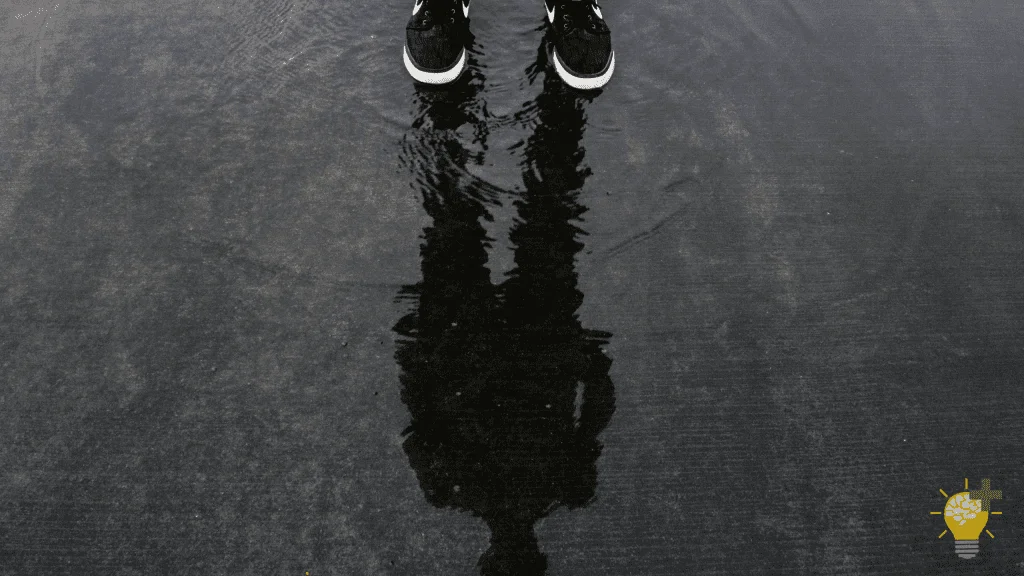It’s no longer news that self-discovery is the first step to true knowledge. This is a well-known fact from ancient times when Socrates said, “Know thyself.” However, knowing yourself or self-awareness takes a lot more than repeating an ancient quote; it requires making time for honest self reflection.
Like most people, you may want to introspect but struggle to find the right questions to get to know yourself better. To help you with that, I’ve developed four lists of 10 questions geared toward helping you become more self-aware on your path toward personal growth.
Choose the list and questions you want in any order that works best for you. Remember, there are no right or wrong answers here. But whatever you do, make sure to answer the questions honestly.
Let’s dive right into the questions.
10 Self-Assessment Questions to Get to Know Yourself
- What are my core personal values, and how do they guide my decisions?
- What are my fears, and in what ways are they holding me back?
- What are my weaknesses, and how can I improve?
- What are my strengths, and how can I use them to overcome my weaknesses?
- What do I need to let go of, and what can I gain by doing so?
- What kind of legacy do I want to leave, and how can I start building it now?
- How can I prioritize self-care in my life?
- What hobbies or interests do I have, and how can I incorporate them into my daily life?
- What kind of books, movies, or music do I enjoy, and what does that say about me?
- What kind of self-talk do I engage in, and how can I make it more positive and productive?
10 Self-Confidence Questions to Get to Know Yourself
- What are my unique talents and skills, and how can I use them to make a difference?
- What were my major achievements or accomplishments, and what did I learn from them?
- What are my goals, and are they aligned with my core values?
- What steps can I take to achieve my goals?
- What kind of person do I want to be, and what actions can I take to become that person?
- What kind of relationships do I want to have, and how can I build and maintain them?
- What kind of career do I want to have, and what steps can I take to achieve it?
- What are my boundaries, and how can I communicate them effectively?
- What kind of impact do I want to have on the world, and how can I work toward that?
- What limiting beliefs do I have, and in what ways can I challenge them?
10 Emotional Awareness Questions to Get to Know Yourself
- What am I passionate about, and how can I incorporate that into my daily life?
- What are my biggest failures, and what lessons did they teach me?
- What coping mechanisms can I use to manage stress?
- What are my biggest motivators, and how can I use them to stay focused?
- How do I handle criticism, and what can I learn from it?
- What are my personal triggers, and how can I avoid or manage them?
- How do I approach challenges, and what can I learn from them?
- How do I handle change, and what strategies can I use to adapt?
- What kind of communication style do I have, and how can I improve it?
- What kind of social support system do I have, and how can I strengthen it?
10 Deep Self Reflection Questions to Get to Know Yourself Better
- What do I see when I look at myself in the mirror?
- What biggest accomplishment makes me feel successful?
- What activities put me in the flow?
- What things make me feel bored?
- What makes me truly happy and fulfilled?
- What easily gets me angry?
- What thoughts run through my head when I can’t sleep at night?
- Do the people I spend most of my time with bring me down or lift me up?
- What past regrets or future worries do I have?
- How can I practice gratitude, and how can it impact my mindset and outlook on life?
How to Build Self-Awareness Using Self Reflection

Having a list of self reflection questions and prompts is a good first step; the next step is using them to learn more about yourself and become more self-aware.
Here are some strategies for using these deep questions to improve your self-awareness and gain a better understanding of yourself.
Journal About Your Answers
Essentially, self-awareness comes down to putting your feelings into words and attaching meaning to them. This way, you can pinpoint beneficial thinking patterns, emotions, actions, and harmful behaviors.
And journaling is one of the best tools for identifying helpful and unhelpful behaviors.
Make time daily, weekly, or whatever works for you to carefully ponder a few questions from the lists above. Write your answer in a journal ― I recommend writing by hand in an actual notebook, not on a digital device.
Putting pen to paper makes you write slower than typing, meaning you are likelier to think about your choice of words before writing them.
To tap into valuable insight and improve your mental health, write freely without editing or censoring. Set your journal aside once you finish writing, and do something else for a couple of hours. When you eventually review your answers, you’ll see things from a fresh perspective.
Record Your Answers
If you prefer to use technology for journaling, I recommend recording the answers to your self reflection questions on your phone or voice recorder.
Using an audio journal allows you to express yourself faster than writing. And hearing your answers in your own voice can have a profound effect on you. For many, it can be a revealing experience, considering not many of us actually hear ourselves talk alone to ourselves quite often.
Also, it’s easy to access an audio recording and listen to it at any time.
Voice Your Answers in Front of Others
Okay, this will probably be difficult for many, especially if you don’t have a trusted partner, friend, loved one, or family member.
Why should you have someone present while you answer deep self reflection questions? Although it can feel a bit awkward or uncomfortable, it helps you catch certain nuances that make a world of difference.
Pondering and answering these questions in front of someone is not just about what you say but how you say it, and that’s a crucial difference when looking to be more self-aware.
For example, does a question make you feel insecure or proud of yourself? Are you nervous about certain questions, or are you happy to provide answers? Your reactions and feelings can offer additional insights into your beliefs and what makes you tick.
Here’s another benefit of voicing your answers in front of someone you trust: you can ask them for their honest feedback about your responses. Remember, self-awareness isn’t just about how you view yourself but also how you come across to others.
Get Answers Through Meditation
It’s important not to overthink your answers when reflecting on the above questions. However, if you honestly can’t answer a question consciously, it is certainly possible to receive an answer through mindfulness practices like meditation.
This method requires pondering a question and keeping an open mind for an answer instead of actively providing one from your conscious mind.
That means asking the question and allowing the answer to come to you from your unconscious mind without expecting a particular outcome or answer.
The answer you get may surprise you, so be prepared.
To receive answers through mindfulness practice, simply ask a question and find a way to quiet your mind (go for a walk, do meditation, or do any relaxing activity). Don’t put a timeline on when to expect the answer; just remove yourself from the process and let things unfold when they do.
What to Do Next

The whole aim of answering these self reflection questions is to avoid unhelpful behaviors and promote beneficial ones.
Once you’ve answered these questions to get to know yourself better, channel your efforts toward increasing the good things you identified during your self-examination sessions and avoid the bad stuff.
In other words:
- Spotlight your strengths by doing more things you’re good at and what makes you happy.
- Steer clear of your weaknesses by avoiding the things you’re bad at and what makes you unhappy.
That’s the meaning of “Know thyself,” and that’s exactly how to build self-awareness.
Final Thoughts
Self-discovery can be difficult because it requires being honest with yourself ― something many would rather avoid, considering the truth is often scary.
However, making an effort to know yourself is a rewarding experience if you’re looking to create significant positive changes and live a happier life.
Lastly, understand that building self-awareness is not a one-off event. Introspection is an ongoing activity in the lives of highly self-aware people, so make it a part of yours too.




